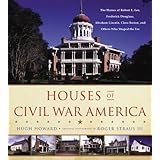This
week, our readers kicked of Nevermore with Dark
Money: The Hidden History of the
Billionaires Behind the Rise of the Radical Right by Jane Mayer. A profound and insightful piece of
literature, Dark Money offers a
glimpse into the skewed political climate and economic inequality of the United
States and explains how “a network of exceedingly wealthy people with extreme
libertarian views bankrolled a systematic, step-by-step plan to fundamentally
alter the American political system.”
Our reader said it was very well written with pages and pages of notes
in the back, detailing Mayer’s resources; however, she also said it was one of
the more depressing books she’d ever read.
The subject matter was frustrating, because it detailed many of the
outrageous inequalities inflicted on the American public by individuals like
David and Charles Koch, who created organizations to influence everything from
academic institutions to Congress. She
admitted that she had to stop a few times in order to take a breather from such
frightening and disheartening material.
Next,
our readers looked at a memoir by Augusten Burroughs: Running
with Scissors. At the tender age of
twelve, Burroughs came to live with his mother’s psychiatrist, a startlingly
unorthodox guardian who bore a striking resemblance to Santa Claus and
provided few, if any rules, for the young ward in his care. A harrowing and sometimes hilarious account
of one boy’s struggle for survival in a new, eccentric household, Running with Scissors is a strange but
incredibly memorable book. According to
our reader, Burroughs’ memoir is “one of the most bizarre books I’ve read in a
long time,” but she praised it for its depth and its originality. Another reader chimed in, saying, “It’s so weird,”
but she too had enjoyed it when she finished her own copy. Both highly entertaining and incredibly
unusual, Running with Scissors was a
big hit at Nevermore and received excellent reviews—and it quickly traveled to
the hands of another reader, who was extremely excited to read it.
Nevermore
also took a look at another memoir, Alligator
Candy by David Kushner. Kushner, an
award-winning journalist and contributor to popular magazines like Rolling Stone, The New Yorker, and Vanity
Fair, among others, has written a poignant memoir about his childhood in
the 1970s Florida suburbs—and the day his older brother, Jon, disappeared. On the inside cover, it reads: “Every life has a defining moment, a single
act that charts the course we take and determines who we become. For Kushner, it was Jon’s
disappearance…” Kushner, intent on
discovering something new about his brother’s disappearance, returns to his
hometown as a reporter and investigates that “defining moment” in the hopes of
capturing something he lost long ago.
Our reader was intrigued by Kushner’s book; however, she discovered she
wasn’t a big fan. Although she finished
reading Alligator Candy, she said it
was a bit of a downer and not quite what she wanted to find this week.
Next,
Nevermore took a look back at the Great Depression with Shiloh Autumn by Bodie and Brock Thoene. Even in the heart of the Great Depression,
the Canfield and Tucker families live peacefully in Shiloh, Arkansas—until the
cotton market collapses in Memphis on October 1, 1931. Based on the lives of Bodie Thoene’s
grandparents, Shiloh Autumn is a
“really wholesome [book], but it was really good,” according to our
reader. She said she was initially
interested in the book because of the title, thinking it was a book about the
Civil War and the Battle of Shiloh; however, she was surprised to find a very
different story—and very surprised to find she enjoyed it. While Shiloh
Autumn was her typical fare, she found she was fascinated by the historical
detail Bodie and Brock included in their novel and she said the story was
particularly compelling.

Last,
Nevermore went even farther back into history to take a look at the Civil War,
specifically the architecture in Houses
of Civil War America: The Homes of
Robert E. Lee, Frederick Douglass, Abraham Lincoln, Clara Barton, and Others
Who Shaped the Era by Hugh Howard.
The title was a bit of a mouthful, but our reader really enjoyed reading
Howard’s collection on Civil War era houses.
He said it was fascinating, calling it “a marvelous thing.” Houses
of Civil War America offered a comprehensive and insightful look into the
houses of notable individuals involved in the civil war, offering both
historical documents and a photographic tour of each of the homes. It has lots of “super pictures” and history,
which he enjoyed—and he especially enjoyed reading about Longwood (otherwise
known as “Nutt’s Folly”) in Natchez, Mississippi. An old antebellum mansion, Longwood was a
house designed by Samuel Sloan with the unique occupants in mind, combining
Italianate architecture with an octagonal design to create a truly unique residence;
however, with the start of the Civil War, the Nutt house was never finished and
has remained unfinished for the better part of 150 years. It’s a wonderful coffee table book, our
reader enthused. He highly recommended
it to everyone.




No comments:
Post a Comment